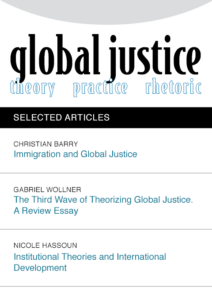By Julian Culp, Tamara Jugov, Miriam Ronzoni and Laura Valentini

Power is a key concern of international politics, one that the discipline of International Relations has been carefully examining for decades. Political theorists, by contrast – or at least those working within the analytical tradition – have devoted comparatively little attention to the question of which exercises of power beyond borders are problematic. Instead, they have focused on global material deprivation and have elaborated increasingly sophisticated accounts of which principles should govern the distribution of natural and socio-economic resources across borders. But why should we care so much about the distribution of material resources per se, when news that makes the headlines is all about power? We switch on our TV sets, and are told that: Russia invades Ukraine, the European Union struggles to solve its sovereign-debt-crisis (for example, German banks put pressure on the German state, who then puts pressure on the Greek state), ISIS conquers territories across several weak or almost collapsed states, the international community fails to legislate against the interests of powerful global actors, such as banks, and so forth. A narrow focus on the distribution of material resources appears out of touch with the most pressing political problems characterizing the international realm. And while global poverty is undoubtedly a problem, some of the inequalities condemned by theorists of global distributive justice seem particularly worrisome precisely in virtue of the power asymmetries that stem from them. In response to this, analytic political theorists have finally started to engage with the issue of power across borders. Theorists from the ‘republican’ tradition have been at the forefront of this engagement, and this special issue is devoted to an exploration of their contribution to international political morality.
Published:
2016
DOI:
doi.org/10.21248/gjn.9.1.98
Online available:
www.theglobaljusticenetwork.org